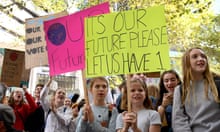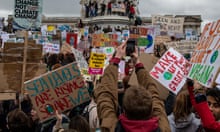The world is slaughtered by walls. Our walls aren’t made of stone, but constructed from something different.
February saw record-high winter temperatures in the UK, defined by the burning of Saddleworth Moor and our supposed leaders truanting during the first climate change debate in two years. Juxtaposing these events reveals this country’s moral blindspot. While we still give airtime to climate deniers and delayers, fuelling debate as though the concrete causes of climate change are no longer based in science, we fail to stare at the real wounds festering around us.
We built walls around our empire, constructed out of colonialism, exploitation and imperial greed, with little regard for the enclosures we created. But history is permeable. It isn’t bound to classrooms, but something we are exposed to every day. We absorb the global narrative our country refuses to recognise, through the shared lives of activists, environmentalists and anyone with a phone and a voice. This narrative is composed from interweaving stories, the voices of a movement unrestricted by walls. Through this lens we are able to reshape our history, but only by first addressing our present. To remain ignorant is to remain immune to blame. It creates disconnection. This is why we need climate justice.
There is a reason why teenagers and children have been chanting, “System change, not climate change”. The system is fundamentally at fault, and our leaders fail to recognise that. They are trapped behind yet another wall of their own construction. It prevents them from seeing the connection between our actions and their leadership.
The Youth Strike 4 Climate movement isn’t just unprecedented, it’s also reforging fractured connections. Going across borders, trespassing upon political nuance laid out by generations before us, young people from around the world are weaving a new social fabric in which climate justice is our connecting force – a sledgehammer to the walls around us. Connections like these form as we reclaim our social media spaces. By building platforms for young activists to share their stories – whether they be of those living among cyclones in the Pacific or political danger in Brazil – the internet can be restored as a place for unfiltered intimacy with things that matter, revealing the reality of climate change for those living it. And, in creating a social network based on the values of internationalism and solidarity, we subvert the system of competition and separation permeating our lives.
In ant colonies, large populations are sustained through the interactions between individual ants. There is little centralised authority in the most resilient colonies. On social media, teenagers have also been swept up in self-organisation, spreading their message from group to group, country to country, with the only central authority being the collective fear we all share.
We are redefining political space and challenging the idea that social media platforms are only uncontrollable forces beyond our control. Instead, we’re creating tools to change the world, but on our own terms. As the power of far-right groups grows online, the digital presence of the Youth Strikes campaign fosters a sense of community that is more like systems of interdependence in the natural world than the walled enclosure of traditional politics. The self-organising power of the strikes and our closeness to others miles from us provides a new alternative. We’re not separate from each other and we are not separate from nature.
We need those in power to act with urgency and new ideas, but we also implore them to address the causes of the crisis. In order to truly repair the climate, we must recognise the system of inequality that has caused its collapse. Britain, while it might not be the biggest carbon emitter in the world, has a responsibility to act, given its historical role in creating the crisis we find ourselves in. Our society is built on the coal-fuelled industrial revolution; we now export our consumerist emissions abroad while providing lines of credit and finance to the destructive industries ravaging through other lands. Our economic model is parasitic, with little regard for people or the planet. Competition, consumerism and separation fundamentally disrupt the patterns of nature. They are the causes of its impending collapse.
Until we recognise our role in climate justice, we will be forever controlled by these forces. Our governments must look to the Youth Strike movement to learn a new way forward. Our movement is fuelled not only by anger, passion, fear and intelligence, but also by a deep understanding of the connectivity of all humans – and humanity’s relationship with the planet. In breaking down the walls of communication, new voices have emerged to define a politics for the future.
Sophie Sleeman is an environmental activist
Comments on this piece are pre-moderated to ensure discussion remains on topics raised by the writer. Please be aware there may be a short delay in comments appearing on the site.










